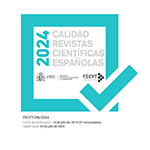Discovery practices in natural sciences: from analogy to preduction
Resumo
In this paper I face up to Charles Peirce’s view that deduction can never originate any idea whatsoever. According to him new ideas come to science only by means of abduction. I affirm on my side that deductive reasoning can be extended to the context of discovery in mathematical physics. Thus a new form of discovery becomes recognizable. I call it preduction and I claim that it is the way by which many factual hypotheses, theoretical laws and theoretical models are anticipated in physics. I point also to the fact that both, abduction and preduction, provide us with intrinsically fallible hypotheses. The fallibility of abductive inferences was already recognized by Peirce himself. The fallibility of preductive inferences follows directly from the fact that the available background, on which the preductive way of reasoning grounds, can be not true. Since moreover many other creativity practices, like induction, analogy and serendipity, are worthy to be taken into consideration in the methodology of natural sciences, it becomes reasonable to assume the existence of a plurality of fallible strategies in scientific discovery.Downloads
##submission.format##
Licença
La Revista de Filosofía, para fomentar el intercambio global del conocimiento, facilita el acceso sin restricciones a sus contenidos desde el momento de su publicación en la presente edición electrónica, y por eso es una revista de acceso abierto. Los originales publicados en esta revista son propiedad de la Universidad Complutense de Madrid y es obligatorio citar su procedencia en cualquier reproducción total o parcial. Todos los contenidos se distribuyen bajo una licencia de uso y distribución Creative Commons Reconocimiento 4.0 (CC BY 4.0). Esta circunstancia ha de hacerse constar expresamente de esta forma cuando sea necesario. Puede consultar la versión informativa y el texto legal de la licencia.












